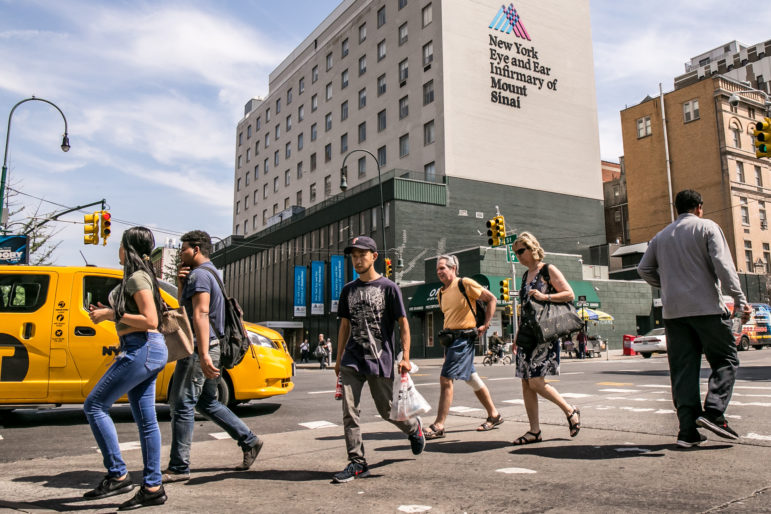New Queens Councilmember Lynn Schulman wants to incorporate hospital capacity into New York City’s zoning process, following decades of medical facility closures, including several in Queens.

Adi Talwar
Mount Sinai Health System (MSHS) in Manhattan.COVID-19 hospitalizations have once again surged to Spring 2020 levels in New York City, reigniting demands for more medical centers following years of shutdowns.
In Queens, three hospitals—Parkway in Forest Hills, St. John’s in Elmhurst and Mary Immaculate in Jamaica—shut down in 2008 and 2009. A fourth, Peninsula Hospital in Far Rockaway, shut its door for good in 2012. Last year, state officials considered a proposal to turn the Rockaways’ last remaining medical center into a 15-bed “micro hospital” and Brooklyn’s Kingsbrook Jewish Medical Center actually did end its inpatient services, despite the ongoing pandemic.
Several new city councilmembers campaigned on reversing that trend by assessing the impact of the closures and adding new medical centers to the five boroughs. And one wants to incorporate hospital capacity into New York City’s zoning process.
“If we get new developments, whether in my district or other parts of the city, we need to know we have the medical resources to match what’s going up,” said new Queens Councilmember Lynn Schulman during an appearance on WBAI’s City Watch Sunday.
She likened the proposal to the environmental impact reviews mandated in every rezoning. A law passed last year now also requires the city to assess the impact of land use proposals on a neighborhood’s racial and ethinic demographics.
“Queens has the worst hospital capacity of any borough in the city,” said Schulman, who represents Forest Hills, Kew Gardens, Rego Park and Richmond Hills. “And the lack of hospital capacity meant some people couldnt get access to healthcare.”
“We are experiencing the worst public health crisis of our lifetimes and COVID exposed all of the inequities that already exist in city government and just exacerbated them,” she added.
Organizers and everyday New Yorkers have long fought the closure of hospitals across the five boroughs—a trend fueled by a 2005 state task force led by investment banker Stephen Berger. The Berger Commission proposed cutting healthcare costs by closing unprofitable hospitals, including some serving New York City’s poorest residents.
The proposals faced heavy criticism at the time. And the ensuing closures received renewed scrutiny last year as remaining medical centers struggled to treat thousands of New Yorkers sick and dying of COVID-19. The city and state moved to set up makeshift hospitals inside large event venues.
Schulman and her Council colleagues aren’t the only lawmakers looking to reverse hospital closures and improve healthcare access to New York City residents. A new state law will assess the impact of proposed hospital shutdowns and mergers on the communities they serve. The measure, signed by Gov. Kathy Hochul last week, has received praise from community healthcare advocates.
“The COVID-19 impact made it really clear that hospital beds and other healthcare resources are not distributed equitably around the state,” said Lois Uttley, coordinator at Community Voices for Health System Accountability.
The Jan. 2 episode of City Watch also featured interviews with Sam Mellins, a reporter at the news organization New York Focus and Eddie Venegas, a violinist and member of the orchestra in the Broadway show “Ain’t Too Proud”—which will close later this month as a result of the pandemic slowdown.
Listen to the Jan. 2 episode of City Watch on WBAI 99.5 FM:










One thought on “City Watch: Should NYC Land Use Decisions Consider Hospital Capacity?”
Bellevue Hospital needs to be partially privatized. Inpatients need to be monitored by outside agents of the public to prevent sexual crimes perpetrated by other patients and or hospital employees or volunteers or visitors. Patients should not be released into homelessness and should not be forced to stay past 3 hours and should always have a pen and paper to communicate with a lawyer. The telephone should be functioning.